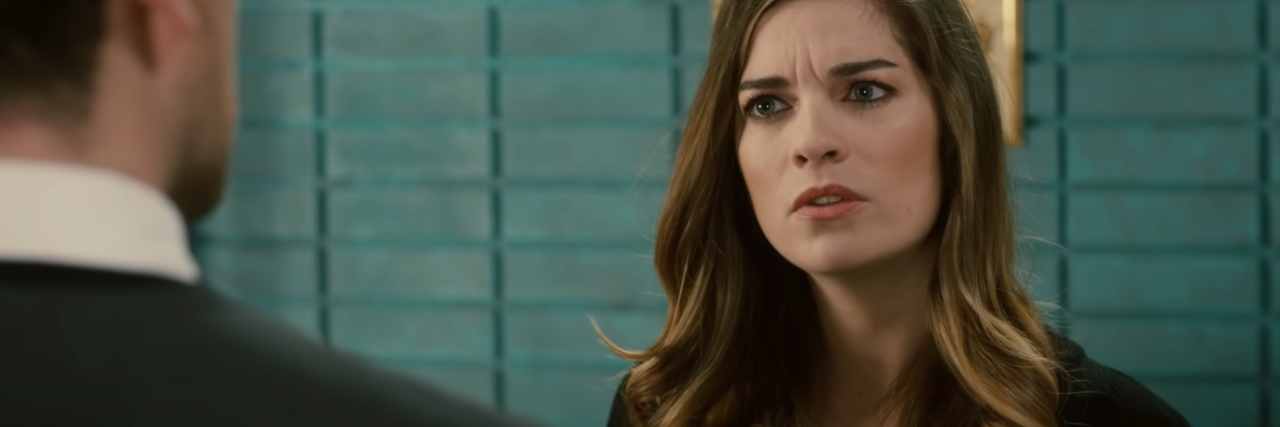'Schitt's Creek' Star Annie Murphy Shows Even Celebrities Have Depression
Prior to COVID-19 lockdown last March, I was one of the few people who had no idea who Annie Murphy was or what the show “Schitt’s Creek” was about. When everything stopped and we were forced to stay home and do nothing, I could feel my mental health struggles coming on full force. My anxiety was through the roof and my depression at not knowing when we could reopen our business was settling in like a dark cloud over my head. I needed levity desperately so I turned to Netflix. I found this quaint Canadian show that quite literally changed my life. As I binge-watched the entire show, I fell in love with the Rose family and in particular with Alexis, the character portrayed by Annie Murphy.
Alexis represented the arc of growth that the characters take on their six-season journey perfectly. Expertly played by Murphy, she portrays a nuanced character who goes from desperately shallow to deeply feeling and likable. I loved the show and the characters so much that I binge-watched it two more times over the course of the last year, laughing and crying and experiencing a range of emotions that I seldom allow myself to feel.
When I read this article about how Annie Murphy experienced her own mental health struggles post-filming “Schitt’s Creek,” I found myself even more fond of the actress and could identify with her “Irish Melancholy.” She describes feeling lost after the show ended, worried that she’d never get the chance to work again and that she’d get pigeon-holed into characters that were like Alexis but nowhere near as nuanced. By the time she went home to Canada in March of 2020, she was “crying 12 times a day hysterically, to the point where (her) teeth (were) chattering.” Her mother insisted she see a therapist, who diagnosed her with depression. She was prescribed antidepressants and started regular therapy.
Murphy notes feeling like maybe people thought she had no right to be depressed since she’s rich and famous, but credits her mental health treatment as having “saved her life,” enabling her to get back to work on her new show “Kevin Can F**k Himself.” She also credits her coming out of a challenging mental state as she began the show with giving her a unique understanding of her character.
Murphy didn’t “make it” as an actress in terms of critical acclaim and making money until she was in her 30s. She had almost given up on her dream of becoming an actress, thinking it just wouldn’t happen. The rat race of auditioning, getting callbacks and then not getting the part is one I know all too well as someone who graduated with a Bachelor of Fine Arts degree in media performance and had pursued a career in entertainment myself. Frankly, I couldn’t hack it. I couldn’t deal with the ego-crushing and constant rejection of the audition process. I gave up and moved on because I knew that if I kept trying, I’d get chewed up and spat out by the industry and my mental health was far too tenuous to handle it.
More recently, in the last 10 years, I felt the itch of being on television calling again as more and more chefs were being cast on various culinary competition shows. I have had the good fortune of appearing on local television as a chef doing cooking demonstrations for a local talk show and I love the adrenaline it gives me. That old familiar feeling of being in front of a camera is very intoxicating.
So, I began in earnest to audition again for every cooking show you can think of. In my mid-to-late 30s, I auditioned for about 20 different shows, getting almost cast about half a dozen times, but never quite getting the part for a myriad of reasons — never having to do with my culinary ability but rather things as arbitrary as my short stature or my being “another” female with short red hair. The process reminded me why I had given up the first time around: every rejection felt like a personal attack, a commentary on my worth as a human being, proof that I’ll never be good enough. I finally gave up… again. Another failure. Or was it?
The entertainment industry is unique in many ways. As we all witnessed this last year, movies, television and music can be some of the most life-affirming and best remedies for feelings of hopelessness, sadness and loss of control. They can connect us to others and give us a common language and meaning — something integral to mental health. But… on the flip side, the industry can be horrendously challenging from a mental health perspective to those involved in creating the very art we as consumers benefit from. Not only is celebrity not a shield from mental illness; it can be a direct cause of it. The pressure to perform, remain on top and stay relevant can be overwhelming and can sometimes push performers over the edge.
We’ve heard of plenty of tragic stories of celebrity suicides and stints in rehab. It is refreshing to hear a story like Murphy’s where a celebrity has a strong family and friend support network that is there to hold space for her when she is struggling and which helps her to get the treatment she needs, enabling her to come out the other side of it a stronger person and a positive role model. To me, it serves as a testament to who Annie Murphy is. She’s an inspiring woman whose future is bright and I cannot wait to see how she continues to thrive.
Lead Image via YouTube/Netflix

